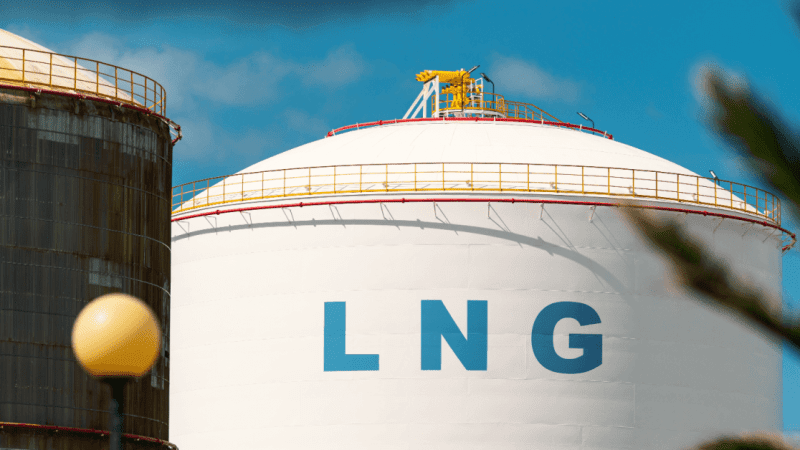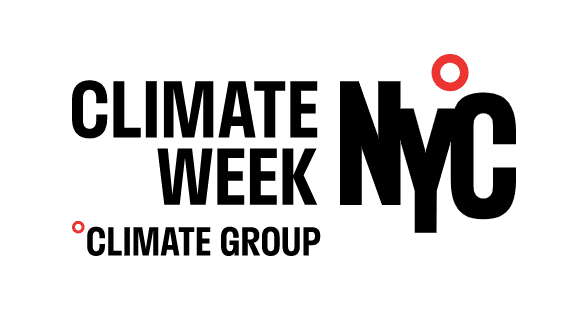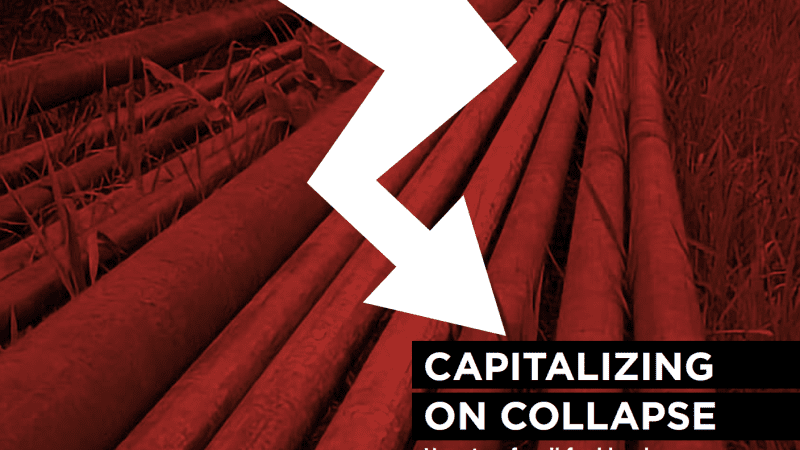Major Fashion Brands Pushing Amazon Rainforest to Irreversible Collapse
January 3, 2022
Stand.earth has just released new research that reveals for the first time how the fashion industry is pushing the Amazon rainforest closer to the tipping point of irreversible ecosystem collapse. Using public and government data to uncover hidden supply chains, the Stand.earth research shows how fashion brands’ leather sourcing poses an existential climate risk to the world, the Amazon rainforest, and to Indigenous communities.
SAN FRANCISCO, CA — Stand.earth has just released new research that reveals for the first time how the fashion industry is pushing the Amazon rainforest closer to the tipping point of irreversible ecosystem collapse. Using public and government data to uncover hidden supply chains, the Stand.earth research shows how fashion brands’ leather sourcing poses an existential climate risk to the world, the Amazon rainforest, and to Indigenous communities.
Key findings from the research — which analyzed nearly 500,000 rows of customs data obtained from multiple data providers and cross-referenced with data collected from other sources to uncover hidden supply chains — include:
-
Over 100 brands have supply-chain links to Brazilian leather exporters, including JBS, the largest exporter known to engage in Amazon deforestation.
-
These brands include: Adidas, Nike, Coach, Prada, Zara, Ralph Lauren, Tommy Hilfiger, New Balance, Teva, UGG, and Fendi, which were found to have multiple connections to Amazon deforestation. Coach, for example, has 10 identified connections to Amazon deforestation.
-
Because of the deliberate obscurity of fashion supply chains, it is extremely difficult to prove a direct link––but each connection increases the probability of any individual garment coming from cattle ranching that caused deforestation.
-
Thirty percent of the companies behind these brands have explicit policies about deforestation, this means that some or all of them are likely breaching their own policies against sourcing leather from deforestation. The other two-thirds of the companies have no relevant policies in place at all.
Brands often hide behind the claim that their supply chains are free of illegal deforestation—but a 2020 study found that almost all deforestation in the Brazilian Amazon is illegal. What’s more important: at this stage, any deforestation pushes this critically important ecosystem closer to the edge of collapse. Fashion brands, manufacturers, and suppliers have given the appearance of implementing anti-deforestation policies without actual change, delaying deep systemic change in favor of slow, incremental improvement. This delay, in practice, is tantamount to the new climate denial, which is why Slow Factory is leading the charge on a new strategic model of environmental campaigning that’s focused on results rather than virtue-signaling. The campaign gives the public the tools to call for accountability from brands, and legally hold them accountable through legislation.
Cameron Russell, model & cofounder of the Model Activist:
“In the past few years we’ve seen our industry embrace activist language and sometimes even action. A few years back when news about fires raging across the Amazon caught the world’s attention so many of us took part in sounding the alarm, and many of the biggest fashion corporations even announced specific anti-deforestation policies. So the news of our widespread connection to the continued destruction of the Amazon is both extremely disturbing and an opportunity for us to lead and make real change. It is time to go beyond celebrating someone else’s activism, and find ways to change our own industry. We are being given the chance to show up for all of humanity, protect the earth’s lungs, and the home of so many indigenous people on the frontline of climate chaos.”
Colin Vernon, co-founder of Slow Factory:
“The fashion industry is known for deliberately obscure supply chains that hide massive human rights and environmental abuses. Given the very lax standards and enforcement on the part of the Brazilian government, we are calling on global brands to make sure that they can prove that their supply chains are clean, without relying on the word of their suppliers, or standards that have massive loopholes. The truth is, the Amazon is being burned down to raise cattle for meat and leather, and brands have the power to stop it.”
Amber Valletta, supermodel, actress, British Vogue sustainability editor:
“Knowing there’s a direct connection between leather that makes our shoes and bags and the destruction of the Amazon really shook me. The fashion industry is among the most creative, powerful and influential in the world. There’s absolutely no reason why it can’t roll up its sleeves and stop being an accomplice to even another inch of Amazon deforestation.”
Sonia Guajajara, executive-coordinator of the Indigenous Peoples Alliance from Brazil (APIB):
“Deforestation is a matter of life and death for Indigenous Peoples in Brazil. Bolsonaro’s government has stopped the demarcation of all Indigenous lands and is working relentlessly to reverse our rights. His agenda has exponentially increased land invasions and violence against Indigenous Peoples – a lot of it pushed by cattle ranchers. The fashion industry, which buys these products, has to pick a side. Will it stand with those who protect the forests or with those who destroy them?”
SPOKESPEOPLE
STAND.EARTH
Travis Nichols, Communications Director, Stand.earth
+1 206.802.8498
travis@stand.earth
RESEARCH FINDINGS:
-
Greg Higgs, Director of Research and Investigations, Stand.earth
+1 604.757.3902
greg@stand.earth
AMAZON DEFORESTATION X CATTLE RANCHING/LIVESTOCK:
-
Tasso Azevedo, General Coordinator of MapBiomas & SEEG initiatives. Forest Engineer and former Chief of Brazilian Forest Service, Brazil:
+55 11 99121 9619
About Slow Factory:
Slow Factory is a 501-C3 non-profit working at the intersection of climate justice and human rights, part school part lab, Slow Factory’s founders have been translating complex issues for the general public with a focus on sustainability literacy, environmental racism, and colonial exploitation since 2003. Slow Factory has been working at the intersection of social and environmental justice through education and design thinking since its inception in 2013. The non-profit has deepened and expanded public knowledge in the fashion space, establishing itself as a highly esteemed organization recognized by international museums and major publications.
About Stand.earth Research Group
Stand.earth Research Group specializes in chain of custody research, identifying and tracking raw materials as they move through complex supply chains and eventually become consumer products. They trace environmental destruction and human rights violations all the way from source to end use. Armed with this powerful data, Stand.earth Research Group’s partners and clients are able to hold corporate actors accountable and, ultimately, change corporate practices.
About Model Activist
The Model Activist Community, aka the Model Activist, is a global community of over 400 fashion models who work together to build a more sustainable, just and equitable fashion industry (and world). It was co-founded in December 2016 by Aine Rose Campbell and Cameron Russell. Since then, the Model Activist members have walked in sustainable fashion shows at the UN, marched in multiple climate marches around the world, spear headed the #Metoo movement in the fashion industry, raised funds for Hurricane Harvey and the indigenous communities on the frontline of climate change, held clothing swaps, educational panels, book clubs, and much more!



